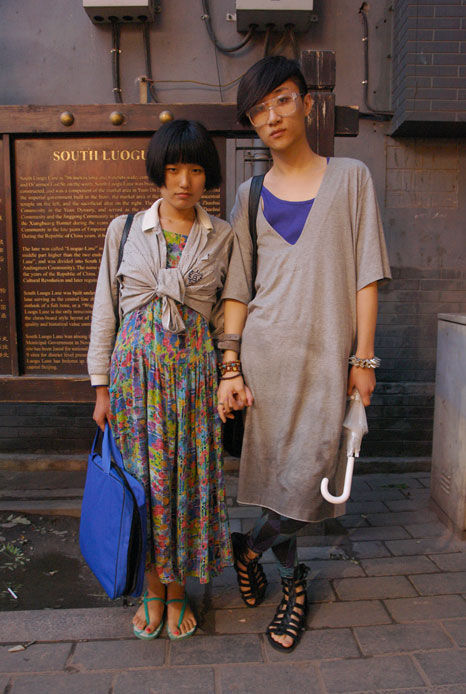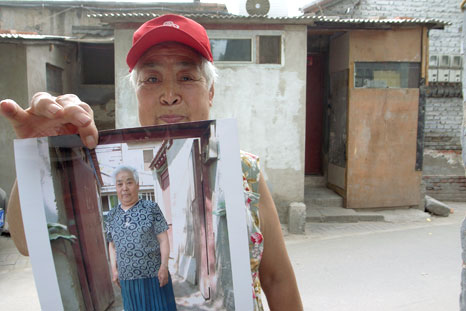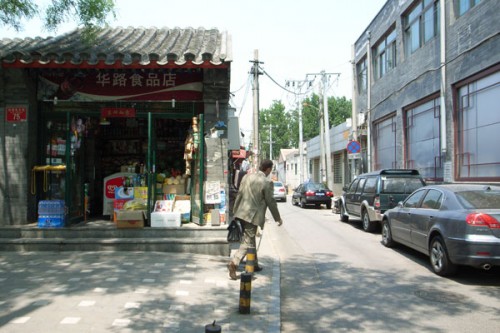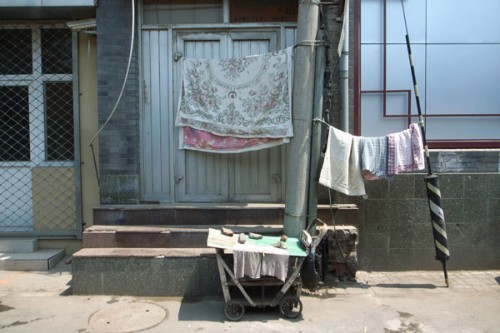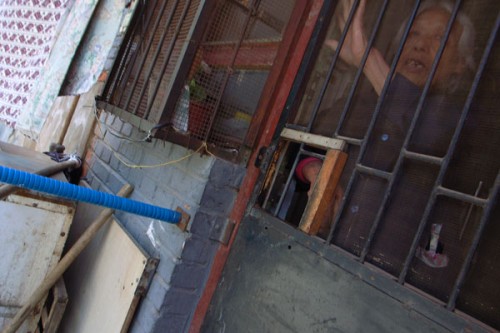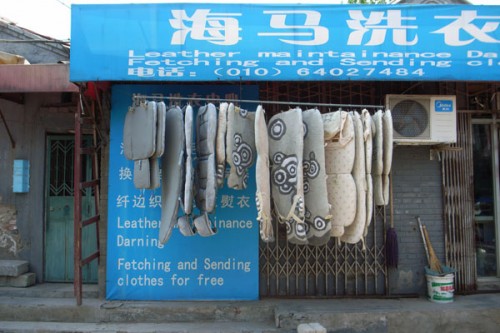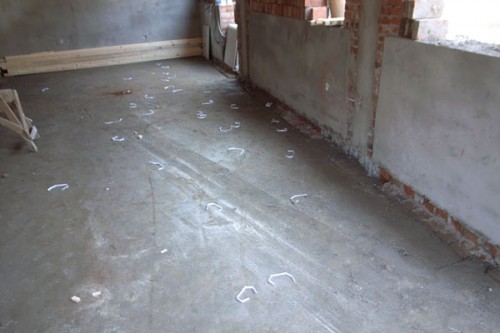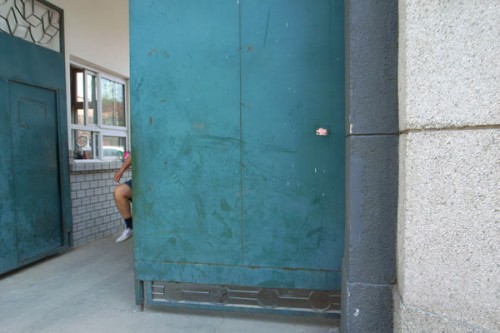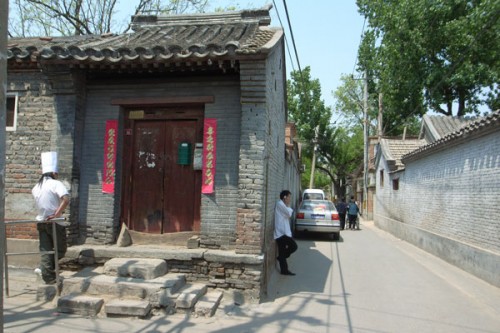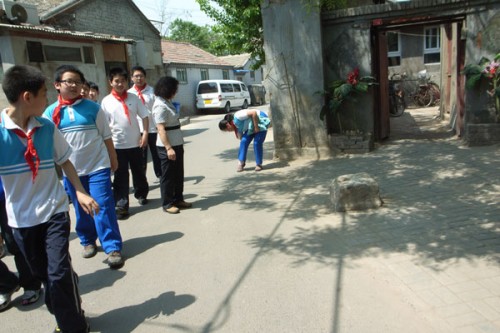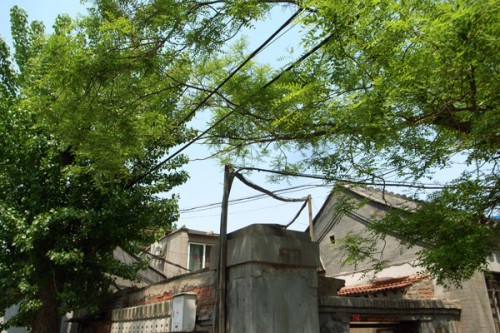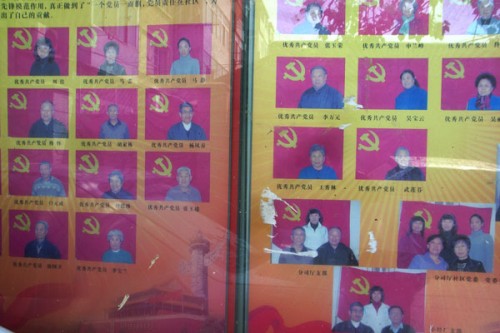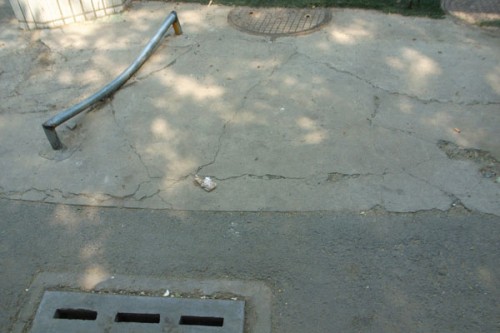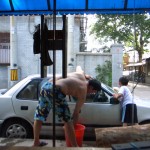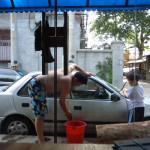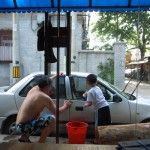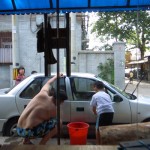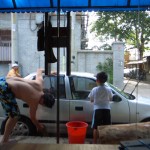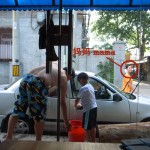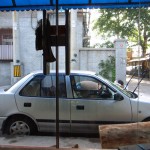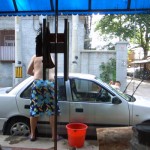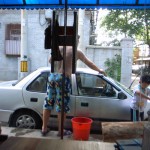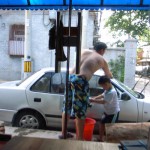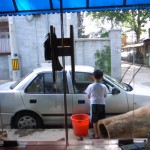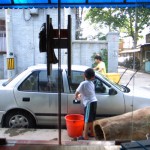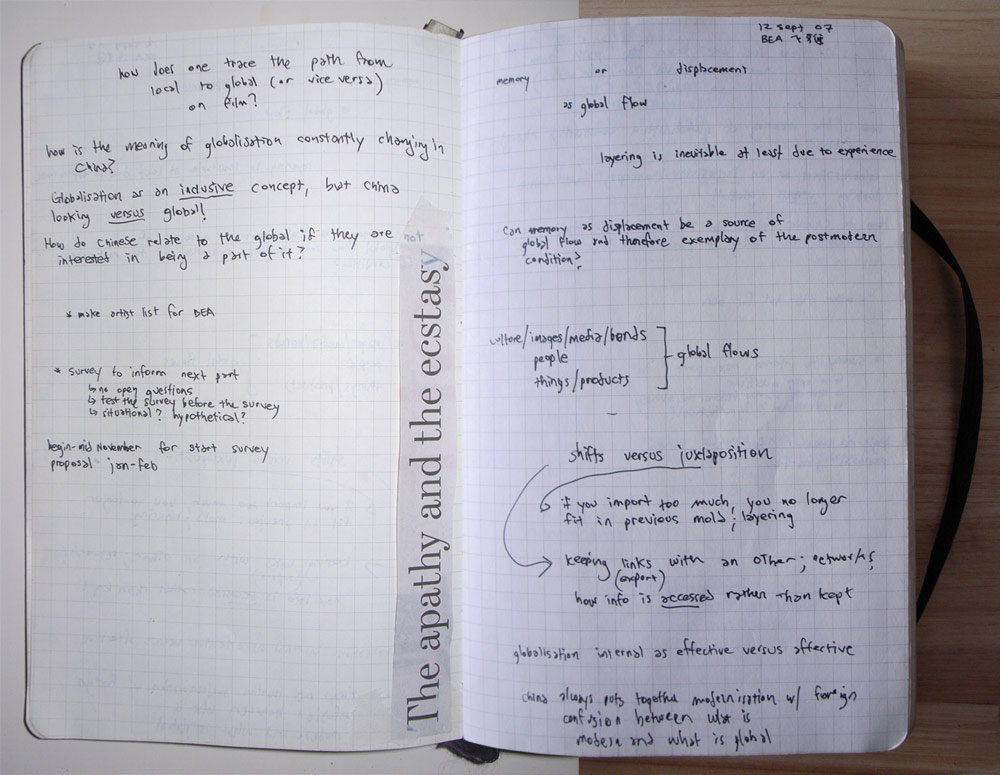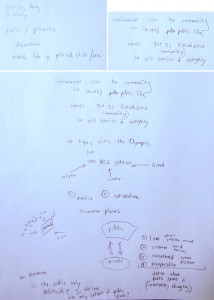
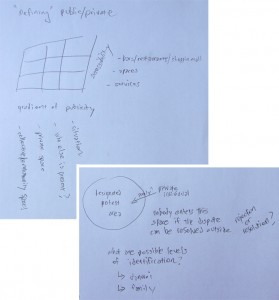
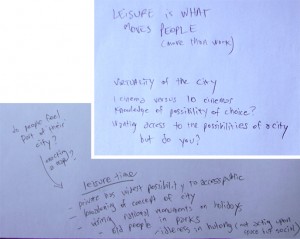
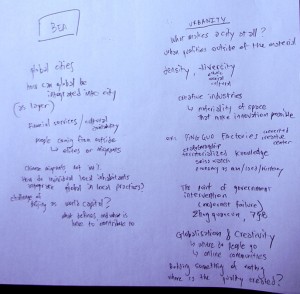
The Games 2008 series is continuing. The Paralympics are still coming, even if the feeling of event spectacle is over. Of course we can admit obvious issues regarding the status of the handicapped, but is it also reasonable to say that we simply cannot sustain the prolonged excitement of this culmination of seven years of anticipation? What happens to our sense of time now, in this period between the Olympic games and the straddled Paralympics? The stadium stays closed to the public. Incoming and outgoing post is on intense inspection and delay. Yet we already reminisce on buses and subway cars as we watch constant replays of the Games and its opening/closing ceremonies. All major western media had already pre-prepared the requisite article for print the day after the closing ceremonies—-tag phrases including “Olympic Reflections“, “Where to go post-Olympics“, “The Day After Verdict” (yes, we are being tried here) and “Afterglow of Games, what’s Next for China?” There is an intensely compressed sense of time to be noted here—-one that is self-conscious and thrusting outward with pointed fingers—-that is the more precise point in question about the current state of affairs.
I am still trying to catch up, two weeks behind updating the latest news, what should be a daily log of hutong life during the Beijing Olympics. Circling through and around wide-eyed impressions and an attempted absorption of the 16-day countdown, anxious about making sure the next days were organised, layering and folding the blog posts and the nows with the question of “what happens next?” The New York Times asks and Baudrillard, too, as in the joke of the man who leans quietly out of the group in the midst of a wild orgy: “So what do we do after the orgy?” Well, isn’t it exactly that which we’ve forgotten, perhaps necessarily so, that part about getting on with our everyday lives? Those of us living in Beijing at this moment know that this period is by no means “daily life”. Or is it? This was a mega world event, certain to be extrapolated out from the context of a larger global politics. But under the magnifying glass of this attempted map, what is the ergon, the “being-in-operative” that points to the simultaneous inoperability and “pure potentiality” that we have as everyday citizens or human beings (for these are not the same)? [1] What has simultaneity done to our senses of space in this map of Beijing? It is this “being-in-operative” that renders the map ridiculous and clunky, for we were merely attempting to go with the flow, Olympics/politics aside. But actually, because politics and our subjectification as citizens can never be merely aside, can we affect-ively trace a new map therein?
——–
[1] Giorgio Agamben references here Aristotle’s Nichomachean Ethics:
For just as the goodness and performance of a flute player, a sculptor, [Olympic athlete] or any kind of expert, and generally of anyone who fulfills some function or performs some action, are thought to reside in his proper function [ergon], so the goodness and performance of man would seem to reside in whatever is his proper function. Is it then possible that while a carpenter and a shoemaker have their own proper function and spheres of action, man as man has none, but was left by nature a good-for-nothing without a function [argōs]?
Giorgio Agamben. “In this Exile (Italian Diary 1992-94)”. from Means Without End: Notes on Politics. Minneapolis: University of Minneapolis Press, 2000. pp. 140-141.
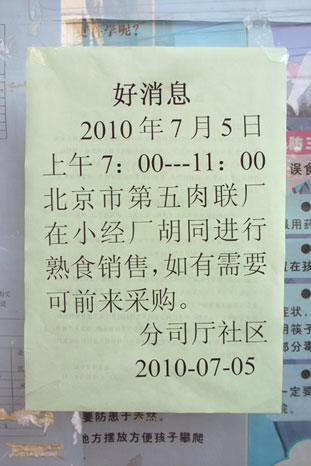
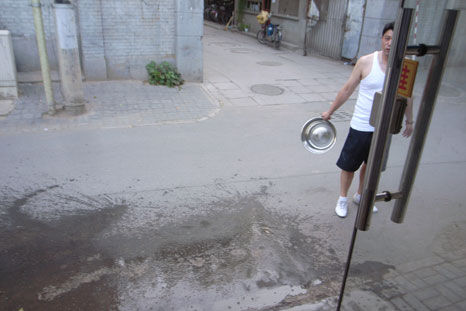 Dousing one’s patio with water helps to beat the summer heat. Brother Zheng (老二) redefines our local radius by improving upon our meagre efforts.
Dousing one’s patio with water helps to beat the summer heat. Brother Zheng (老二) redefines our local radius by improving upon our meagre efforts.
 时间 posted on: 5 July 2010 |
时间 posted on: 5 July 2010 |  发布者 author:
发布者 author: 
 分类 filed under:
分类 filed under: 